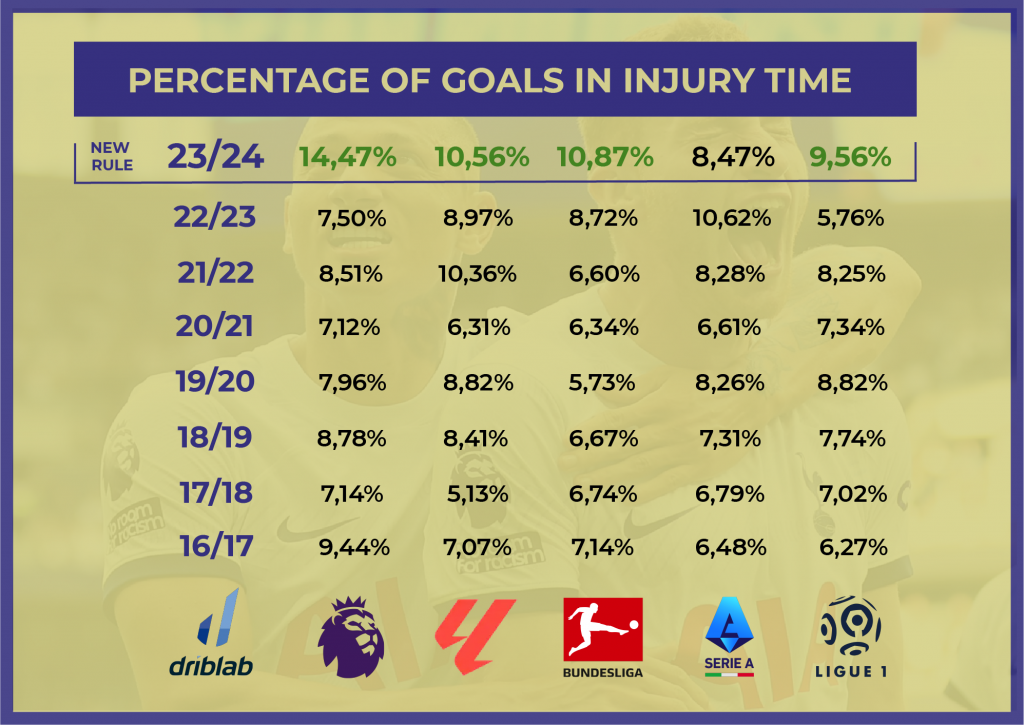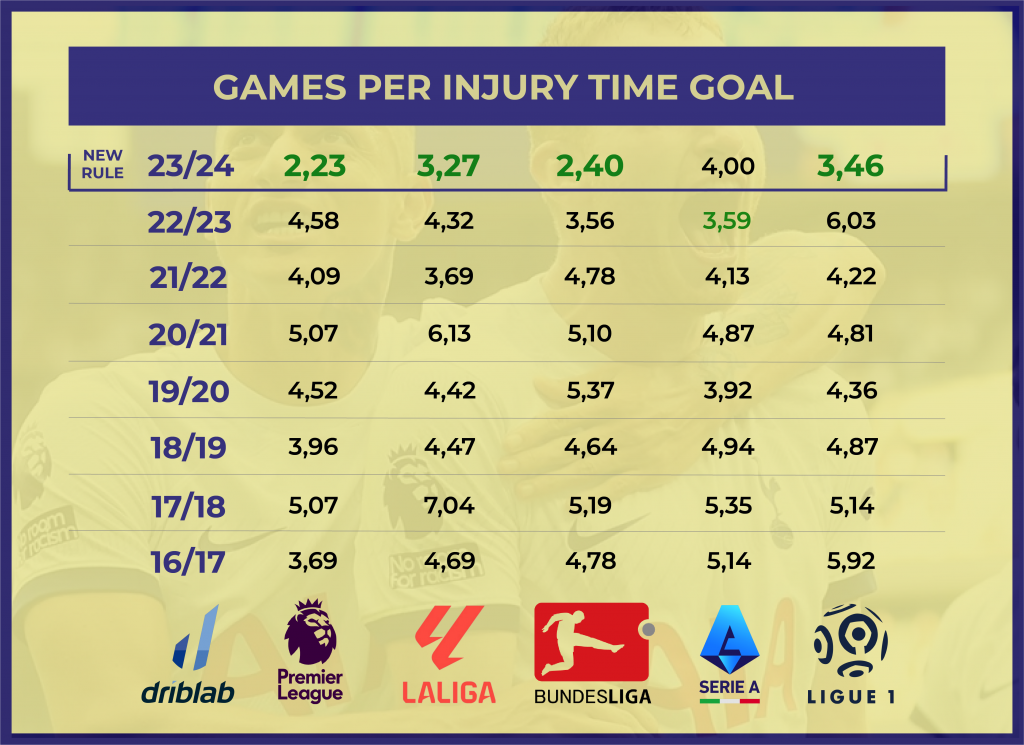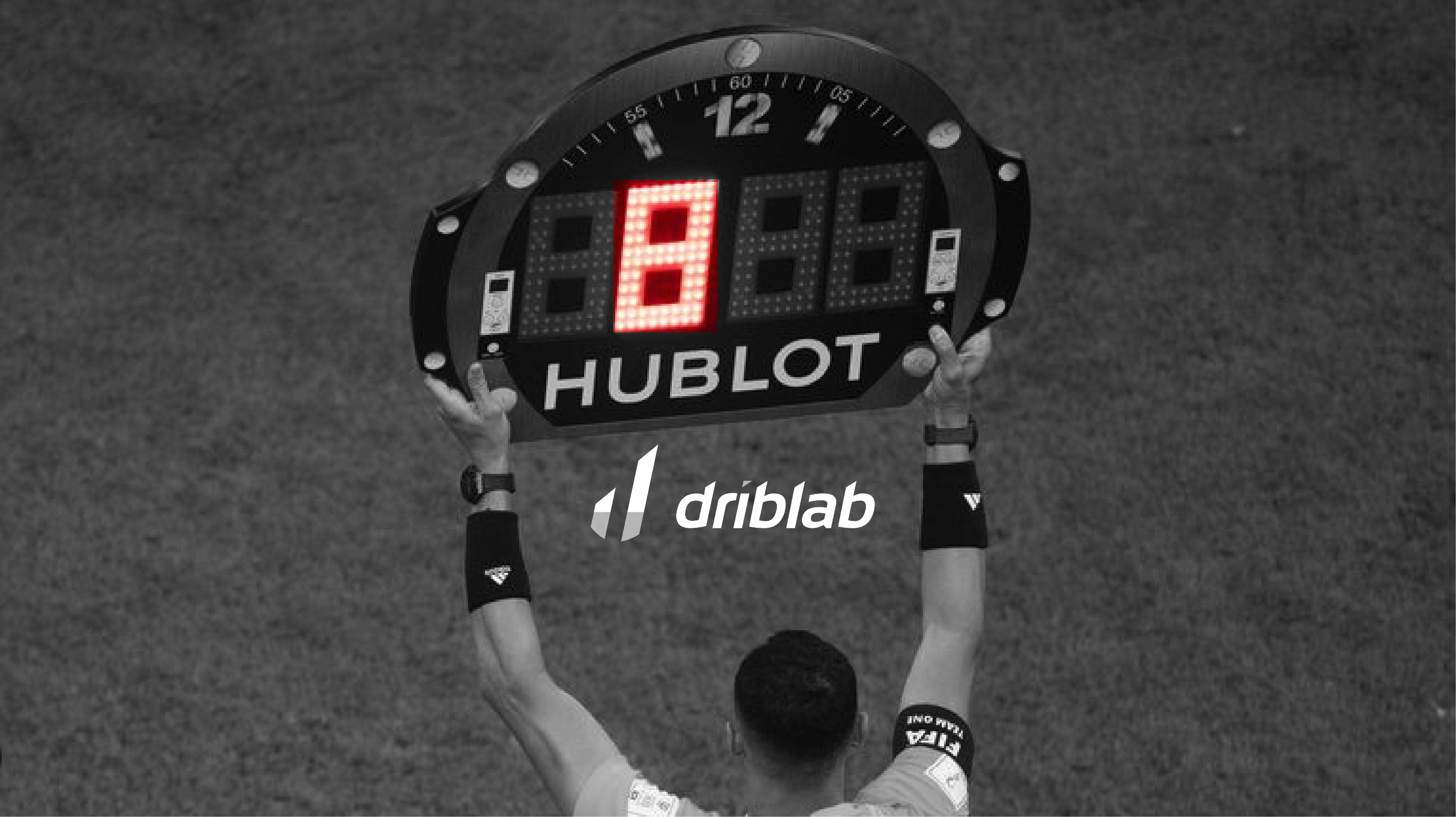One of the biggest problems in football in recent years has been playing time, a circumstance that has become paramount for FIFA, who at the last World Cup in Qatar implemented new injury times based on the number of stoppages that occurred. Although the debate is open, especially for those who believe that such an update does not fix the problem but aggravates it, this rule is having a major impact on elite football.
Cards, fouls, time wasting, medical assistance, the entry of VAR and its decisions or substitutions. There are many different interruptions that have led to a decrease in effective play time season after season. To solve this, the different leagues have been adding minutes to the injury time according to the interruption, which has led to discounts of more than 10 minutes with regular frequency. Once the 45′ and, above all, the 90′ are reached, matches still have many surprises in store. Although this measure may not bring back the longed-for continuity in the game, it is the first step towards restoring the spectacle and punishing those teams that try to interrupt matches too much.
If we look at the percentage of goals scored in injury time as a proportion of total goals, three of the top five leagues are exceeding 10% and four of them have scored more goals in injury time than in the previous six seasons. Only the Premier League is scoring twice as many goals in injury time as last season.

If we filter the same data by the number of games per injury-time goal, the situation is equally striking. In Ligue 1, goals are being scored in stoppage time every 3.46 games, compared to 6.03 games in 22/23. If we combine the last seven seasons of the top five European leagues, we see a clear evolution since the introduction of the rule. According to our database, in these first 4 or 5 matches of the 23/24 season, the number of matches per goal scored in stoppage time has clearly been reduced. The clearest case, thanks also to its culture and pace of play, has been, as we say, in the Premier League, where a goal is being scored in injury time for every 2.23 games, compared to 4.58 in 22/23 or 5.07 in 20/21. The relationship is direct and simple: the more injury time, the more goals are scored.

We have two recent examples, in Aston Villa – Crystal Palace and Tottenham – Sheffield United, with two goals in stoppage time at Villa Park and two at Tottenham Stadium, the second of them in 99:52 minutes, one of the latest goals in Premier League history, scored by Dejan Kulusevski. Even with only a few matchdays to show for it, it seems clear that increasing injury time so significantly will increase the production of goals in the final minutes of matches and, as we shall see later, more comebacks will occur.
Founded in 2017 as a consultancy, Driblab has driven innovation through data in all aspects of professional football. Thanks to a transversal model, its database collects and models statistics in all directions. From converting matches and videos into bespoke data for training academies to developing cutting-edge technology, helping clubs, federations and representative agencies in talent scouting and transfer markets. Driblab’s smart data is used by clubs all over the world, with success stories such as Dinamo Zagreb, Real Betis and Girondins Bordeaux among others. Here you can find out more about how we work and what we offer.














